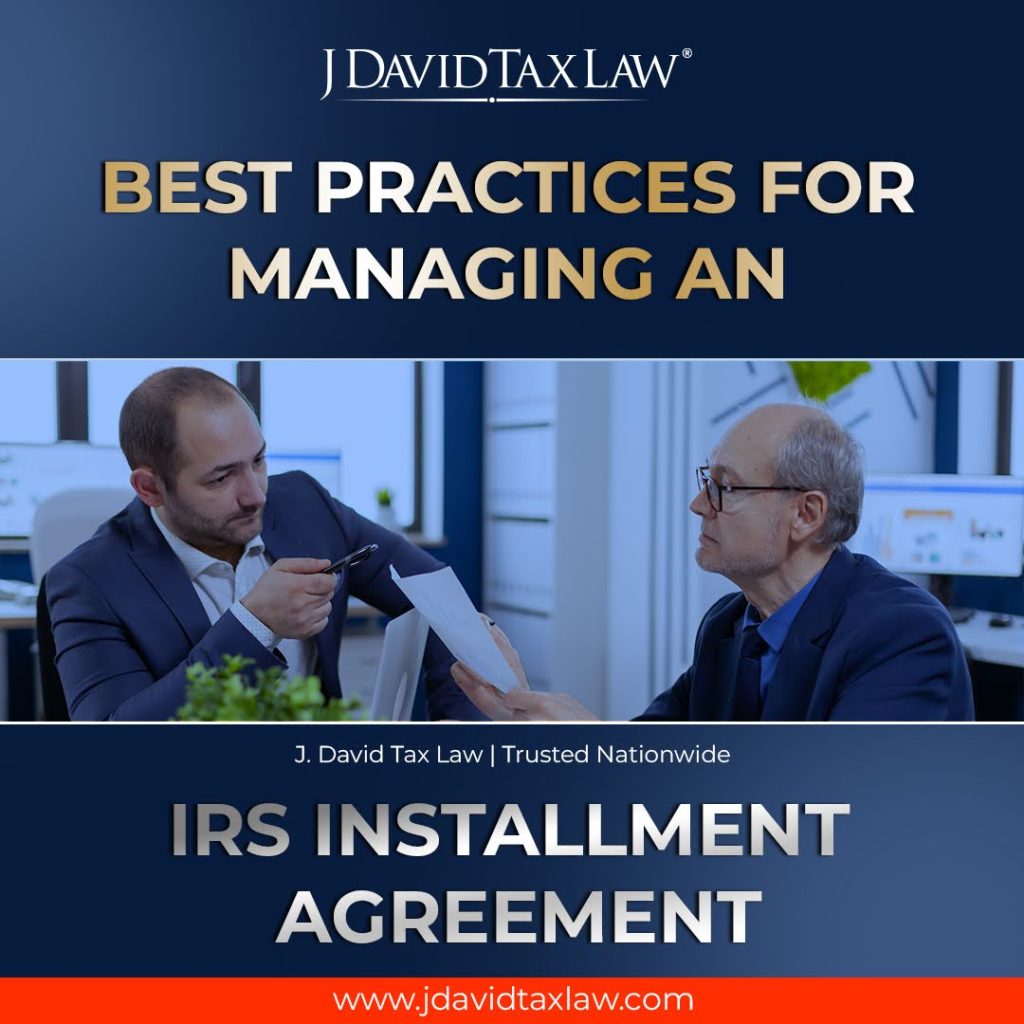- Home
- About Us
- IRS Calculator
- Services

Tax Debt Solutions

Specialized Tax Services

IRS Enforcement Actions

Tax Filing & Compliance

IRS Disputes & Audits
- Locations
- Contact Us
Call for Free Consultation

Tax Debt Solutions

Specialized Tax Services

IRS Enforcement Actions

Tax Filing & Compliance

IRS Disputes & Audits
Call for Free Consultation
Stop the IRS from seizing your assets—our reliable tax levy attorneys offer a quick IRS levy relief to protect your assets.
Find Out If You Qualify for Tax Levy Relief in 4 Easy Steps!
Check Your Eligibility for Tax Levy Release Today!

An IRS tax levy is one of the most aggressive collection tools the IRS uses and takes property without a court order. If you’ve received a Notice of Intent to Levy or your assets have already been targeted, it’s critical to act quickly to avoid serious financial harm.
At J. David Tax Law, we specialize in fast, strategic levy defense. Our experienced tax levy lawyers work to stop or reduce IRS levies through rapid negotiations and legal safeguards.
Depending on your situation, we may help you qualify for:
Already facing an IRS levy? Whether your wages are being garnished, your bank account is frozen, or the IRS is threatening asset seizure, we’re ready to intervene immediately. Our IRS levy attorneys fight to protect your assets while building a personalized resolution plan that addresses both immediate threats and long-term tax relief.
State tax levies can be just as damaging, and we handle those too. These occur when state authorities enforce unpaid tax debts through asset seizure—similar to IRS actions but just as urgent to resolve. Don’t wait until the IRS takes what you’ve earned. Contact J. David Tax Law today to stop the levy, protect your assets, and move toward real financial recovery with a proven tax levy attorney by your side.

To qualify for a tax levy release, certain criteria must be met. The IRS typically releases a levy if it determines that the levy is causing undue financial hardship or if you have taken significant steps toward resolving your tax debt.

If you can prove that the levy is preventing you from meeting basic living expenses, you may qualify for a release. This requires providing detailed financial documentation to the IRS to demonstrate that the levy is causing undue hardship.
If you set up an approved installment agreement or Fresh Start Program with the IRS to pay off your tax debt over time, the levy may be released as part of the agreement. The IRS is generally willing to lift the levy once a payment plan is in place.
Submitting an offer in compromise to settle your tax debt for less than the full amount owed can also lead to a tax levy release. Once the IRS accepts your offer, the levy is typically removed, providing immediate tax levy relief.
If you can show the IRS that releasing the levy will help you pay off your debt faster, the IRS may agree to lift the levy. This requires careful negotiation and proof that you can resolve the tax debt more efficiently without the levy in place.
If you request a Collection Due Process (CDP) hearing by filing IRS Form 12153, the levy could be temporarily released while the hearing takes place. This provides an opportunity to present your case and potentially obtain tax levy relief.

Get started with a no-cost, no-obligation consultation. We will discuss your options and outline a strategy to stop the levy and resolve your tax debt.


Our experienced tax attorneys will assess your eligibility for relief based on financial hardship, potential installment agreements, or offers in compromise.

We handle the submission of critical forms such as IRS Form 12153 for a Collection Due Process hearing if need be and negotiate directly with the IRS.

Our attorneys work to remove the IRS levy – whether through currently non-collectible status or a other resolution of your tax debt.

Get started with a no-cost, no-obligation consultation. We will discuss your options and outline a strategy to stop the levy and resolve your tax debt.



Our experienced tax attorneys will assess your eligibility for relief based on financial hardship, potential installment agreements, or offers in compromise.

We will examine the cause of disagreements with the tax authorities, and explain to the client if their views will prevail against the opinion of the IRS.



When a difference of opinion can’t be resolved during a tax audit, a taxpayer may file a tax appeal to get a final decision from a tribunal.

An IRS tax levy is a direct enforcement action that can result in immediate seizure of wages, bank funds, or property if not addressed promptly. At J. David Tax Law, we act fast to stop levies and restore your financial stability through tax levy relief.
The IRS won’t lift a levy without legal or financial justification. That’s why we use targeted relief options, backed by proper documentation, to meet IRS standards and compel release.
Request a Partial Levy Release
If a full levy release isn’t granted, our IRS levy attorneys can request a partial release to free up essential assets like wages or account funds while broader resolution efforts continue.
Appeal the Decision
If the IRS refuses to lift the levy, we can file an appeal and present your case to a higher IRS authority, often resulting in a reversal of the original action.
Apply for Currently Not Collectible Status
If the levy creates financial hardship, our tax lawyers can help you apply for CNC status, which may pause collections while your financial condition is reassessed.
Negotiate an Installment Agreement
We work directly with the IRS to negotiate affordable monthly payments. An accepted plan often results in tax levy relief or suspension during repayment.
Submit an Offer in Compromise
Our attorneys can propose a settlement for less than you owe. If accepted, the IRS may lift the levy and consider the tax debt resolved at a reduced amount.
A tax levy is the IRS’s legal authority to seize your property to collect unpaid tax debt. This may include freezing your bank account, garnishing wages, or taking physical assets. Unlike a lien, which is a claim, a levy involves direct enforcement. If you’ve received notice, prompt legal action is critical to protect your finances.
You can remove an IRS levy by paying your tax debt, proving financial hardship, or qualifying for relief through programs like installment agreements or an Offer in Compromise. Documentation and timing are key. Our Levy tax attorneys act quickly, often within 48 hours, to stop levies and negotiate a resolution with the IRS.
Yes, you can negotiate with the IRS to reduce or release a levy using legal tools such as appeals, partial releases, or structured settlement offers. These options depend on your financial situation and how well your case is presented. Our experienced legal team manages the process from start to finish to protect your income and assets while pursuing bold tax levy relief on your behalf.
The time to release a state tax levy depends on the state’s tax authority and your case details. Some states, like Florida or Maryland, may lift a levy within days if requirements are met and paperwork is filed correctly. In more complex cases, it can take several weeks. Our tax attorneys know how to expedite levy release across multiple states by ensuring full compliance and proper documentation.
A levy on a property is a legal action that allows a government agency—typically the IRS or a state tax authority—to seize your real estate or other personal property to satisfy unpaid tax debt. Unlike a lien, which is a claim on your property, a levy is an actual seizure.
Additional Resources

Unresolved Tax Delinquency? Here’s How to Settle with the IRS Fast

IRS Seizure vs. Forfeiture: What’s the Real Difference?

Best Practices to Avoid Rejection on an Offer in Compromise

Best Practices for Managing an IRS Installment Agreement

2025 IRS Fresh Start Program

Top 10 States with the Highest Tax Debt in 2025
Get IRS Tax Assistance Within 24 Hours
Call for Free Consultation